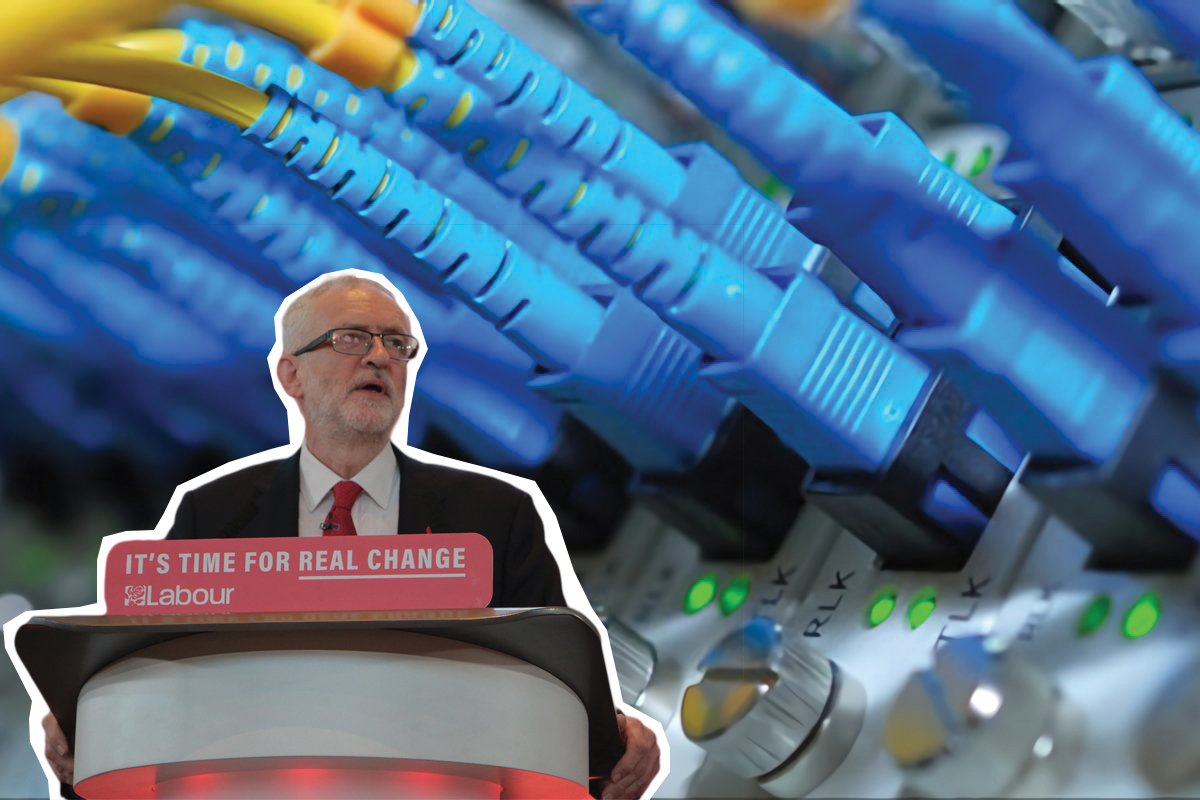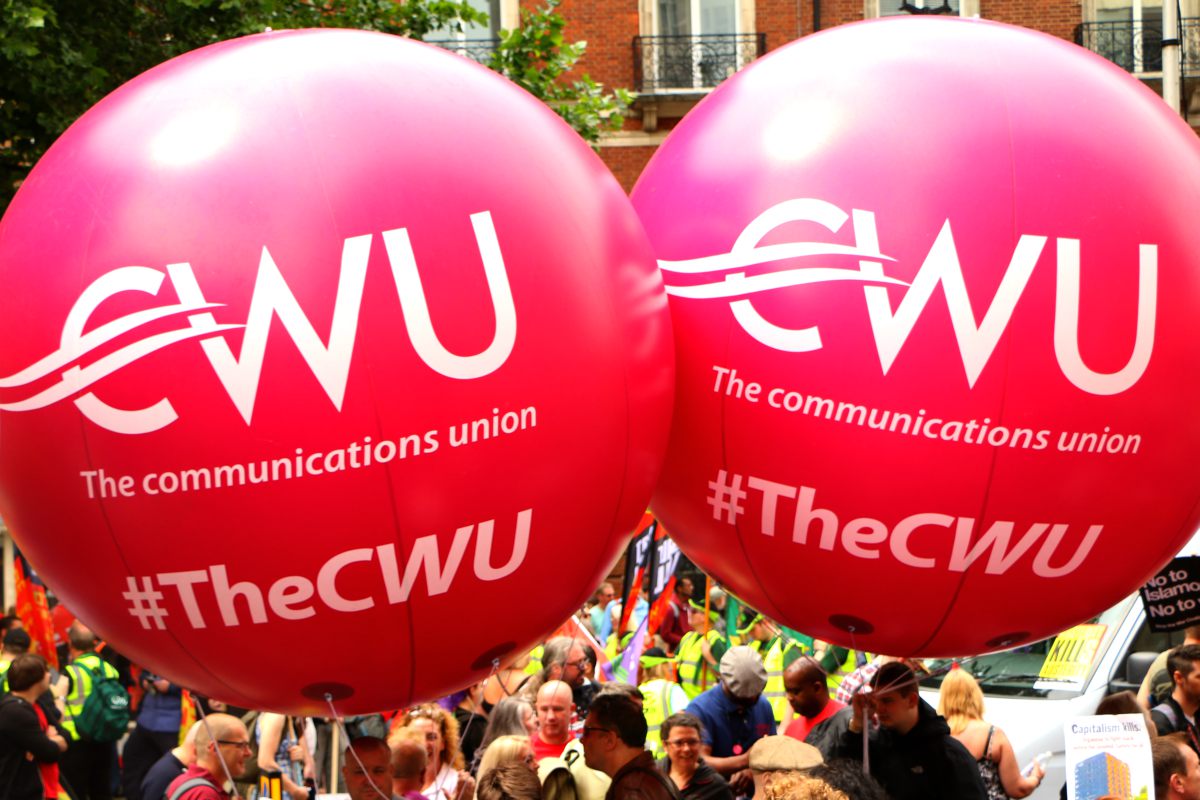CWU members at BT are preparing for their first national strike in 34 years, in response to relentless attacks by the bosses. The labour movement must offer full solidarity, and raise the demand for renationalisation under workers’ control.
BT is set to be hit by its first national strike in 34 years. Workers organised by the Communication Workers Union (CWU) are preparing to be balloted over a long running dispute concerning jobs and conditions.
Ballot papers will be heading out to 45,000 CWU members in BT, Openreach and EE. It has become clear that BT management are still set to push through a raft of cost-cutting and re-organisation measures, even following a huge majority for action in a consultative ballot of workers late last year.
Squeezed
The bosses’ measures are of course aimed at boosting profits at their workers’ and customers’ expense.
For example, Digital Workplace Services (DWS) staff are set to be transferred to Computacenter on 1 April, with the expectation that many will be made redundant. This is a cost-cutting exercise with no benefits to anyone other than BT accountants looking to reduce the company expenses.
BT was one of the first public utilities to be privatised back in the 1980s. Since then, it has proved to be as useless at providing a service to the public as the rest of the privatised utilities that followed.
Even before the pandemic pushed demand right up, demand for internet and phone services was soaring. But BT management rewarded its workers by pushing them hard, and with attacks to their working conditions.
The message from the union ranks has become clear: enough is enough!
As CWU deputy general secretary Andy Kerr told members:
“What we’re not prepared to accept… is seeing members’ cherished job security and terms & conditions being attacked on multiple fronts – with longstanding colleagues being picked off one by one, simply because a new breed of management wants to stamp its mark by making compulsory redundancies as a matter of warped principle.”
As such the ‘nuclear button’ of a strike ballot has now been pressed, backed by full support from members, organisers and branches. The mood is there for a fight. The ‘Count Me In’ campaign for the highest possible turnout and vote for action is well underway.
Profiteers
One thing has already become obvious to union members.
Up until now, BT management have clearly been dragging their feet over improving and expanding the UK internet service. But now they have announced a major £12 billion programme of investment.
The reason for this is simple. Ofcom has just agreed that there will be no price-caps on full-fibre connections. Given that BT has a dominant near-monopoly position in the industry – it handles all the cables, connections and exchanges – this represents a licence to print money, all at our expense.
Yesterday Ofcom decided to give BT a ten-year holiday on price caps, allowing the company to “keep the upside” from investing in new fibre – effectively, monopoly infrastructure. The risk is zero since everyone needs internet; the returns will be huge for BT; we’ll all pay more pic.twitter.com/miFNFTme7c
— Nicholas Guyatt (@NicholasGuyatt) March 19, 2021
Price curbs on the older (and slower) copper-based connections have also been removed for good measure.
Indeed BT now has the option to turn off copper-based connections in areas where full-fibre has become the main option. This allows them to push users into the much more expensive option, whether they like it or not.
Equally, BT doesn’t have to bring in full-fibre to a part of the country if it is not profitable to do so. In these cases, it can just stick to the old copper-based set-up. Over 20% of the UK is believed to be facing this situation. This is therefore profiteering at a grand scale.
Re-nationalise
 BT is already doing very nicely out of the internet boom. Yet one in six families are struggling to pay their internet bills, according to Citizens Advice.
BT is already doing very nicely out of the internet boom. Yet one in six families are struggling to pay their internet bills, according to Citizens Advice.
Ofcom itself has calculated that 4.7 million people are finding it difficult to come up with the £37 a month to pay for their landline and internet bill. Now BT can charge what they like.
As such Labour’s policy at the last election for free internet for all must be pushed forward. This must of course be linked to the renationalisation of BT, without compensation to the profiteers.
That BT is now set to get a huge windfall from being able to raise prices – in what is an essential sector which reaches into everybodies’ home and workplace – shows what really motivates BT bosses.
The whole industry therefore needs to be run by its workers for the benefit of society, not rich investors.
Scandal
In passing we should note that once again Ofcom has shown whose side it is on.
Back in 2017 Ofcom agreed that BT had been clearly overcharging customers with phone-only options. Ofcom told BT to amend its prices, but incredibly did not then instruct them to refund any of the excess charges.
It is like being caught for having carried out a robbery, and then being told you can keep what you nicked! This scandal is now the subject of a class-action legal challenge being put before the Competition Appeal Tribunal (CAT).
Action
A fightback against this daylight robbery is needed. That BT is also ruthlessly cutting costs at its workers’ expense just adds to the anger. CWU members can see where the money is going and who it is going from. Action is needed.
The message from CWU president Karen Rose must be taken on board across the union:
“This is a historic day for us and I’m sure we’ll see history being made again in the coming weeks and months. This is a time for every single member to say ‘Count Me In’ – and together we will win this ballot and win this dispute.”
This strike ballot needs to be won as must the industrial action which flows from it. Full solidarity must be sought from all sections of the labour and trade union movement.
The call must be: Win the ballot! Win the strike! Renationalise BT under workers’ control – and boot out the profiteers!






